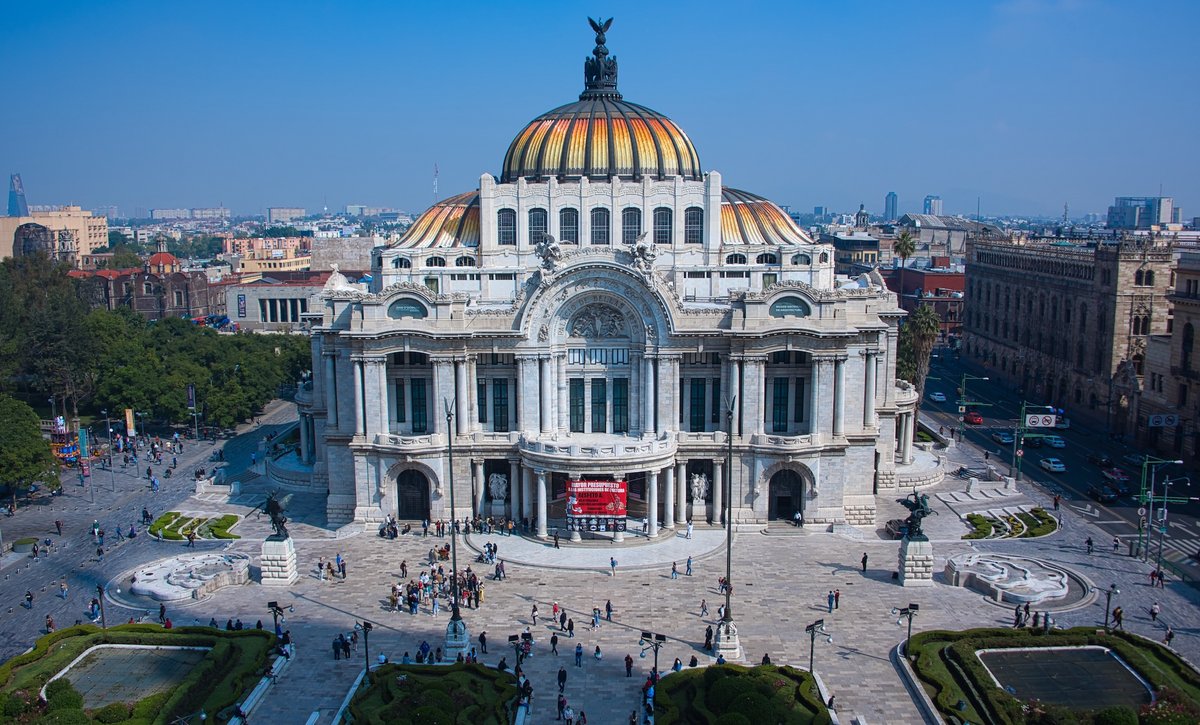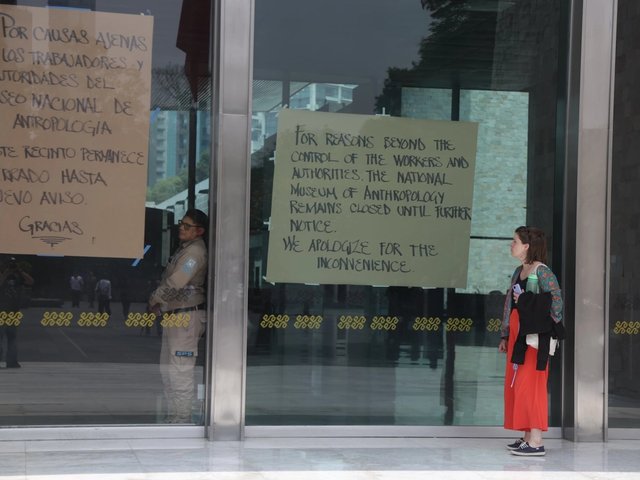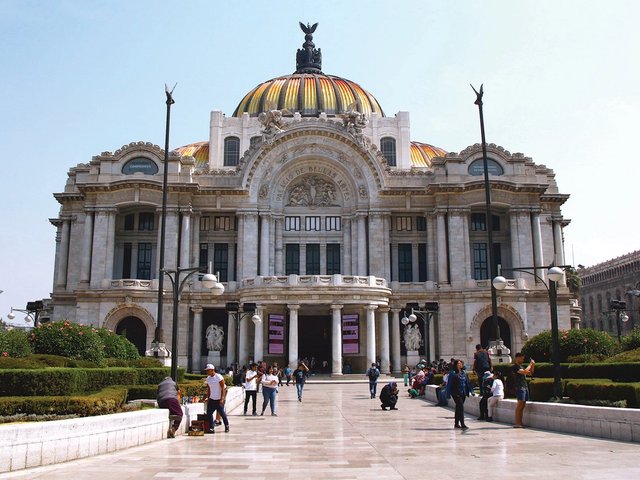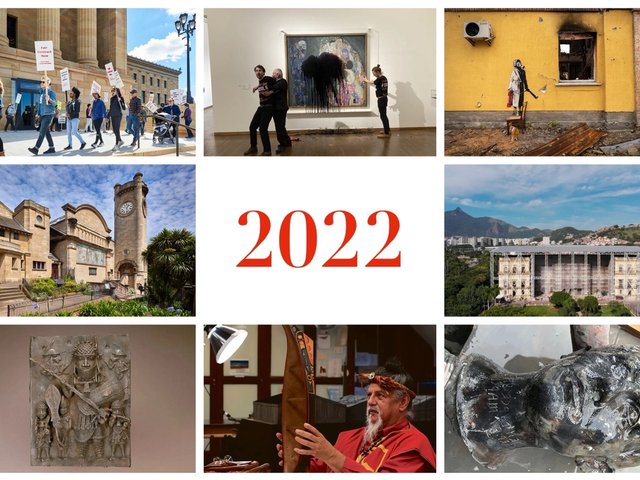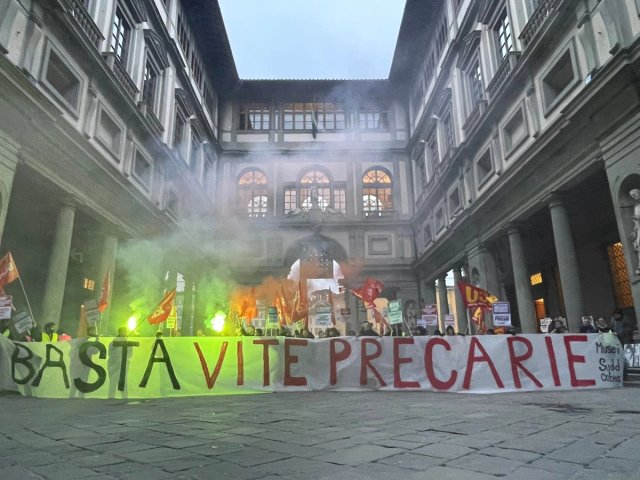Last week, cultural organisations affiliated with Mexico’s National Institute of Fine Arts and Literature (INBAL), including some of Mexico City’s most popular museums like Palacio de Bellas Artes, Museo de Arte Moderno and Museo Nacional de Arte, unexpectedly shut down due to union demands over working conditions and uniforms. Institutions closed abruptly on 9 September and remained closed on 10 September; after negotiations behind closed doors, they reopened on 11 September.
The INBAL oversees Mexican heritage from the 20th century onward, managing 29 schools, 18 museums and several theatres. It was created in 2015, under the ministry of culture, to centralise cultural policy after years under the ministry of education. Budget cuts—including a projected 20% reduction for INBAL in 2026—along with longstanding structural issues, have weakened the ministry of culture.
“The ministry was founded to restructure cultural organisations, yet it has failed to do so,” says a person with direct knowledge of the inner workings of INBAL, speaking to The Art Newspaper on condition of anonymity for fear of reprisal.
The closure highlights a key issue within INBAL: the disparity in working conditions and budget distribution between unionised workers—who often serve in administrative and operational roles—and independent contractors, known as Capítulo 3000, a budgetary category for temporary service contracts.
“Some unions close cultural spaces to pursue their interests and exercise political influence, while Capítulo 3000 workers, often qualified experts in key roles, lack benefits and face delayed pay,” explains a former INBAL worker who resigned due to the harsh conditions.
The strike revolved mainly around uniform procurement. Unions representing INBAL workers demanded they be provided prepaid cards with which to purchase uniforms, allowing more flexibility, instead of INBAL distributing garments already purchased and which “are underused in the first place”, according to the former INBAL worker.
Representatives for INBAL did not respond to The Art Newspaper’s requests for comment.
Years of protests but no progress
Since at least 2018, Capítulo 3000 workers have voiced their concerns, protesting and posting on social media with hashtags like #YaPágameINBAL (“pay me INBAL”) and #conTRATOdigno (“worthy contract”). Promises and legal reforms have been made but yielded temporary solutions at best.
“For years, we have carried out essential work within INBAL, yet under schemes that deny us basic labor rights: no social security, seniority or benefits, and unguaranteed renewal,” reads an 11 September letter addressed to Mexican president Claudia Sheinbaum, quoted by the newspaper Excélsior, and signed by Capítulo 3000 workers who say they have not been paid since June.
The crisis is affecting other institutions dependent on the ministry of culture. In June, workers at the National Institute of Anthropology and History (INAH) closed venues like the Museo Nacional de Antropología due to a shortage of contracted security personnel. On 11 September, unionised workers led a two-day closure of the Biblioteca Vasconcelos, the country’s most important library, which houses Gabriel Orozco’s Mátrix Móvil (2006), is part of the General Directorate of Libraries and is also under the ministry of culture. The library’s closure shutdown partly stemmed from shortages of basic needs like water.
On September 9, the culture ministry announced an increase in museum fees for 2026, sparking controversy before clarifying that it will apply only to non-residents and INAH sites. Yet museum fees, even during major exhibitions, do not fund operations, since they go to the Federal Treasury. “INBAL’s museums do not benefit from ticket revenue generated by their efforts,” says a source familiar with INBAL’s budget.
Observers in the arts and culture sector worry that such labour and funding disputes could cause long-term problems as the workers responsible for world-renowned collections and programmes are left burnt out and unsupported.
“There is a talent drain from INBAL due to excruciating working conditions impacting physical and mental health,” says a source who experienced such conditions firsthand. “This also endangers heritage as it is left in underqualified hands.”


